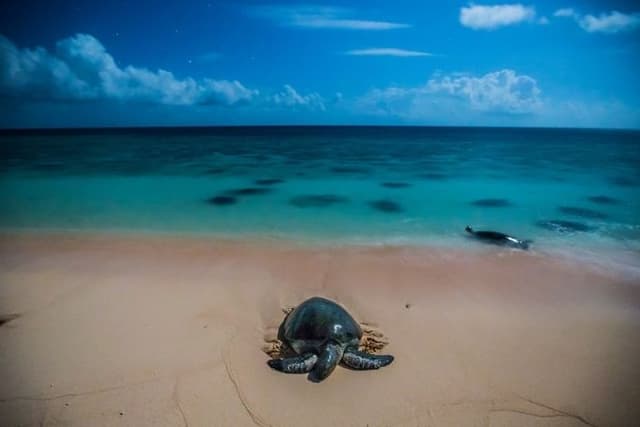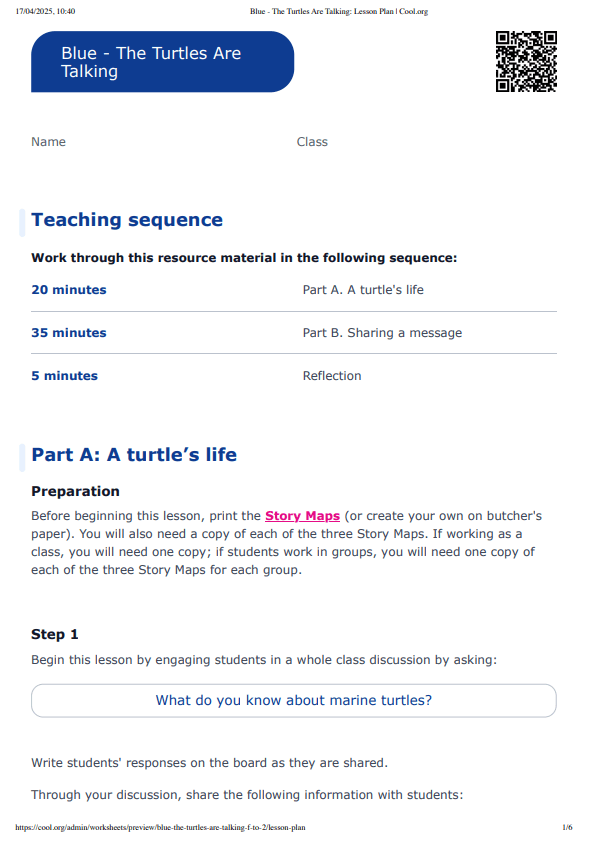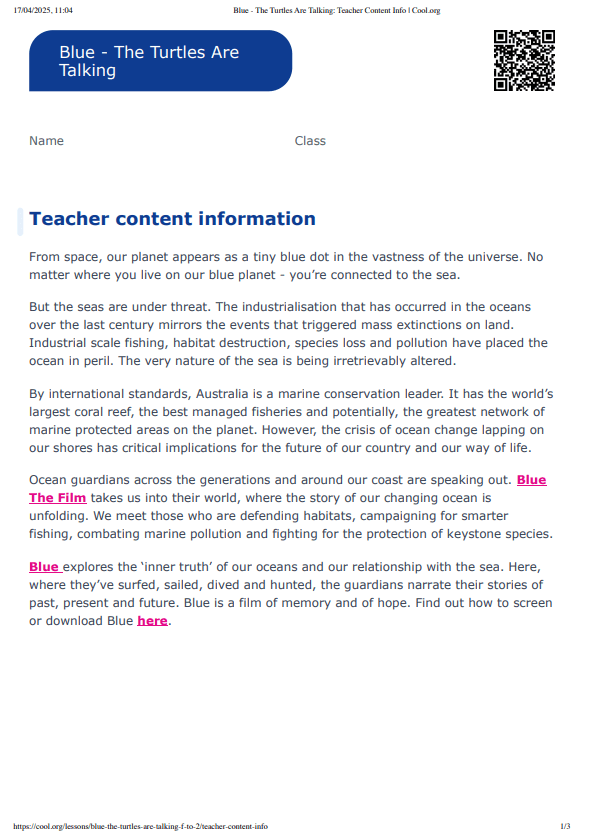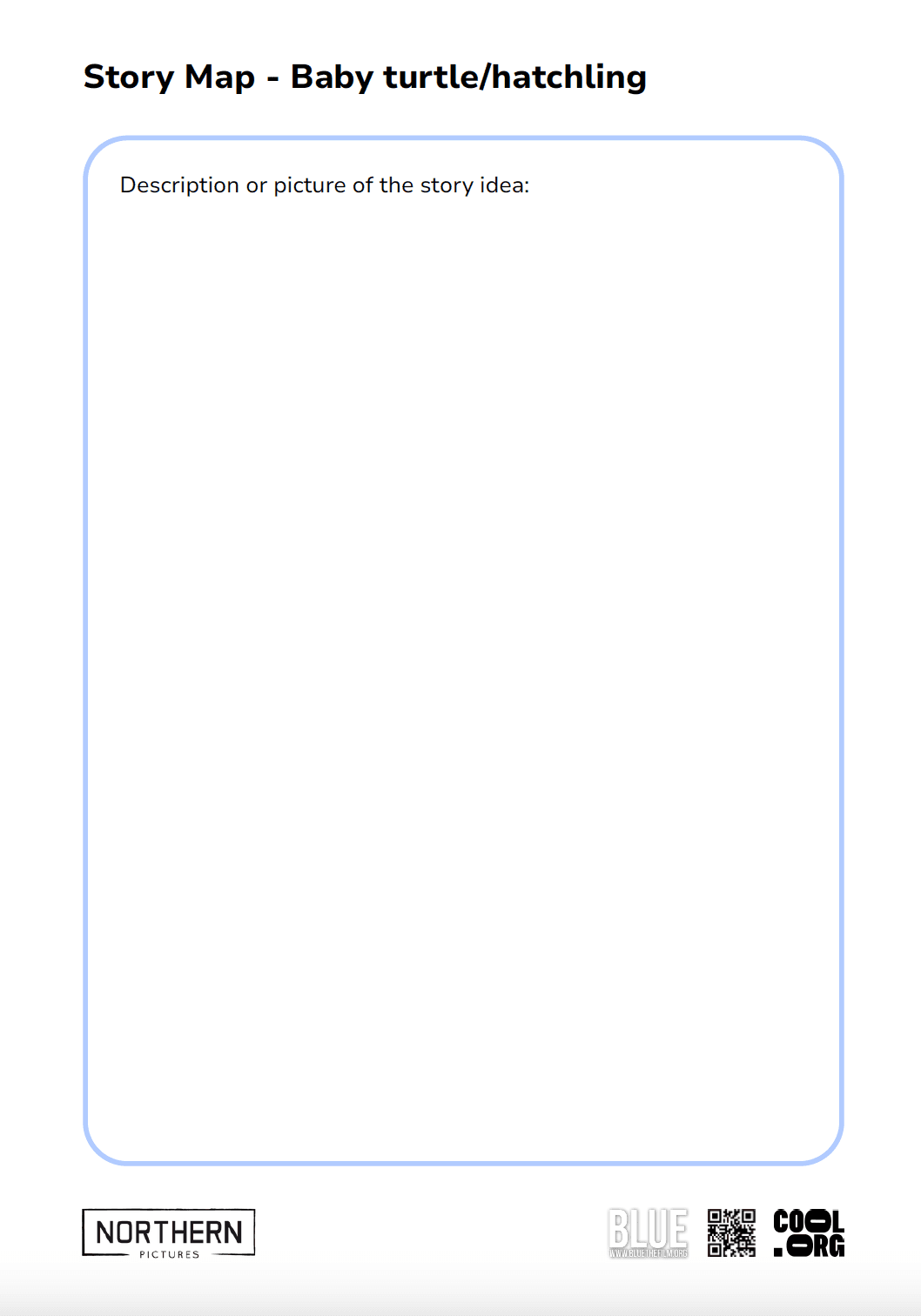
The Turtles Are Talking
Lesson5 of 7 in this unit
PrimaryFoundationYear 1 - 2EnglishLearning through filmScienceEnvironmentalBiodiversityConservationOceansWater
Summary
Lesson Guides and Printables
Lesson Plan

Teacher Content Info

Story Maps


Lesson Plan

Teacher Content Info

Story Maps
